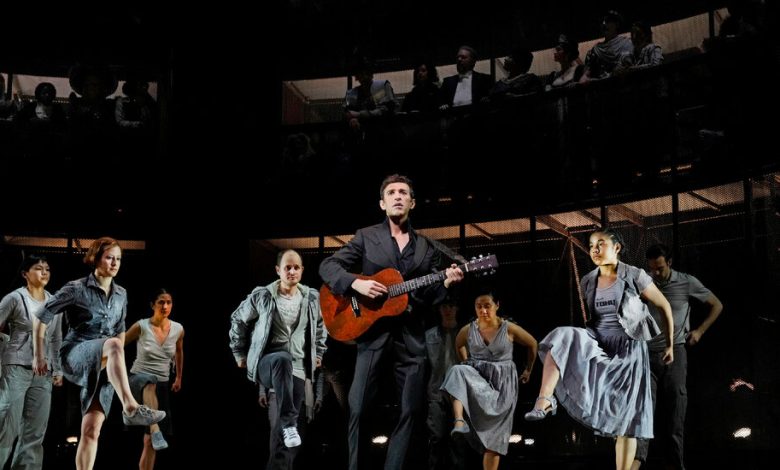Review: A Delightful ‘Orfeo’ Returns to the Met Opera

Gluck’s opera “Orfeo ed Euridice” is a funny thing: a timeless Greek myth of separation and loss, twisted into a Viennese cream puff.
Both that darkness and light are embraced in the choreographer Mark Morris’s 2007 production, which is being revived at the Metropolitan Opera starring the countertenor Anthony Roth Costanzo. A firmly established star of the house, and a budding opera impresario, he owns the stage as Orfeo.
Gluck’s version of the Orpheus story was commissioned for a celebration of the Hapsburg emperor Francis I in 1762. The tale’s traditional tragic ending was deemed not suitable for the crown, so Gluck tacked on a joyful conclusion. (Spoiler alert: Rather than being cleaved for eternity, the lovers are happily reunited.)
Operas from around Gluck’s time were often little more than vehicles for vocal pyrotechnics. “Orfeo ed Euridice,” instead, is a character study of the grieving Orfeo, desperate to do anything to be reunited with his deceased Euridice. Costanzo is a bewitching performer who knows how to move his voice through many shades of tone and meaning — qualities on ample display in the aching Act III aria “Che puro ciel” and, in Act IV, “Che farò senza Euridice,” in which Orpheus realizes that he may have lost his beloved forever.
Seen on Thursday, Costanzo was this opera’s melancholic heart and soul. The soprano Ying Fang proved a worthy complement as Euridice. She brought a pearly tone and an equally rich characterization to her role, particularly in the sublime Act IV duet, which curdles into a pained quarrel as she realizes that her husband refuses to look at her.
Another soprano, Elena Villalón, sang the impish god Amore, who charges Orpheus with his task of rescuing Euridice from the underworld without gazing upon her. Villalón allowed her witty costume and impressive entrance — clad in preppy khakis, a Pepto Bismol-pink polo shirt and some slightly scruffy wings, she descends from the rafters on wires — to do much of the acting for her. I wished for a bit more pep and bite in her phrasing to match the staging’s zing. By contrast, the conductor J. David Jackson led the orchestra with vigor and snap.